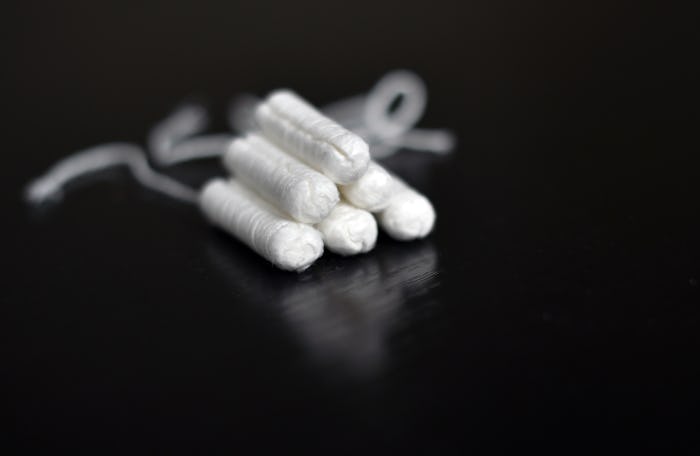Life

When Will You Start Menopause? Here's A Hint
Starting your period is a rite of passage for a lot of people. Young women especially may even feel pressured if they find out their friends have all started, and they haven't. But what about when you get your period earlier than everyone else? A new study says that if you started your period early, you might start menopause early, too. But what does that mean for long term health?
While anyone who has a uterus can menstruate, researchers still tend to limit their studies to those who identify as female. In fact, very little research has even been done on menstruation and science still doesn't know exactly what a normal period should look like. Sex education usually gives young people the once-over on menstruation, and a lot of people get information from their parents.
Young women, especially when they get into their preteen years, might feel worried or even experience teasing from their friends and peers if they haven't started their period by the time they reach high school. But the range considered "normal" when it comes to starting one's period is actually quite a spectrum, and one that has expanded as evolution has continued. Sometimes, though, someone might get their period much earlier than their peers. This can be a jarring experience, for parents too, and researchers have wondered if there's any long term impact on health when menstruation starts earlier than expected.
When a period begins is determined by a lot of stuff: genetics, nutrition, and environment. Science is only just starting to look at why menstruation might start earlier than what is considered average, and are getting a better understanding of how that might predict hormonal health throughout one’s lifespan.
Researchers at The University of Queensland in Australia published a study in the journal of Human Reproduction this week that linked early periods with early onset of menopause. Think of menopause as like the bookend to starting your period: menopause is when you stop getting your period, and is a process that usually starts in one’s mid-40s to early 50s.
This study looked at the menstrual histories of more than 50,000 women all over the world. It found that women who had started their periods before the age of 11 had an 80 percent chance of going into menopause early, too. The researchers also found that women who hadn’t had children were more likely to experience early menopause (having their last period before the age of 45) than women who had. This was added as another possible risk factor, in addition to starting their period early, when it came to assessing the likelihood of early menopause.
The reason that you might not want to start menopause early is that, once menopause begins, hormones that have had protective functions throughout the body, especially for bone health, begin to rapidly deplete. This makes you more at-risk for osteoporosis, which can make it more likely that you’ll break a bone.
The study concluded that, for those who started their periods earlier, monitoring by a doctor throughout their reproductive lifespans can help them take a proactive approach to mitigating the risks associated with starting menopause early, too. Whether it means hormone replacement therapy, or “boning up” on supplements that support a healthy skeleton, researchers were confident that the link they discovered would give women more knowledge to take control of their health throughout their lives.
This article was originally published on